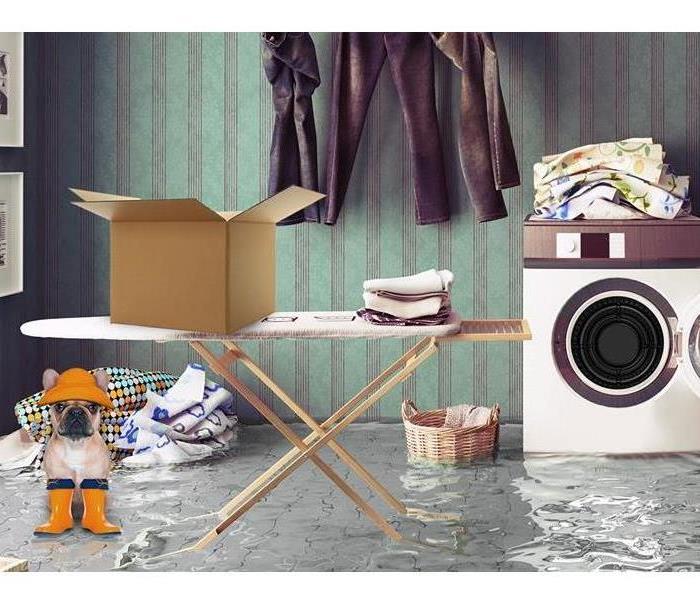So you had a “Water Loss”?
3/7/2019 (Permalink)
So you had a “Water Loss”?
The first question we get from customers who have had a claim is what is the process?
The first steps are obvious, prevent further damage by removing the source of water.
- Turn off the water supply at the street or well
- If there is a broken pipe, call a plumber to cap a line or repair a leak
- Clean the sewer line or get the septic tank pumped if it is a sewage backup
- Clear the snow and ice to relieve an ice dam.
- Verify that the sump pump is working if ground water is entering the structure
- Remove ice or snow buildup outside the building to divert water away from the structure
- Clean or repair the roof gutters to divert water away from the building
- Call a roofer to patch a leaking roof or skylight
The most important question from every homeowner is do I have coverage? The only person who is qualified to answer that question is the adjuster assigned to the loss by the insurance company. SERVPRO cannot make that determination, the agent cannot, your nosey neighbor or mother-in-law cannot, and the internet darn sure cannot. The adjuster will either inspect the loss or interview you to find out what caused the loss. He will then read the policy to see if it covers that specific event. Most policies cover broken pipes or ice dams but many do not cover sewage backup or groundwater intrusion. Where the water originated is important and the adjuster will need to document the cause.
Your policy is a contract between you and your insurance company that spells out specifically what coverage you are paying for and under what conditions they will pay. For example, your policy usually will cover a frozen pipe but specifically states that you are covered only if you “maintain heat”. If you don’t pay your gas bill or let the propane tank go empty, the coverage is voided. The adjuster (insurance company) will often require that you send them copies of your heating invoices for the last 2 months to prove that you maintained heat if the loss occurs in the winter.
Some policies also require that you occupy the home and refuse to cover the loss if you left for several months to stay at a seasonal home or sometimes even if you were hospitalized or in a nursing home. Other coverage problems can arise if you use the home as a rental property but do not buy that type of policy. You must read your policy and talk to your agent to make sure the coverage you purchased is exactly what you need or want. Your agent is an expert on the various policies and should steer you into the coverage you need after asking you questions on how you use the home. And remember to update your policy as circumstances change.
Check out our next blog to understand how you can sometimes get coverage without your insurance company paying.






 24/7 Emergency Service
24/7 Emergency Service
